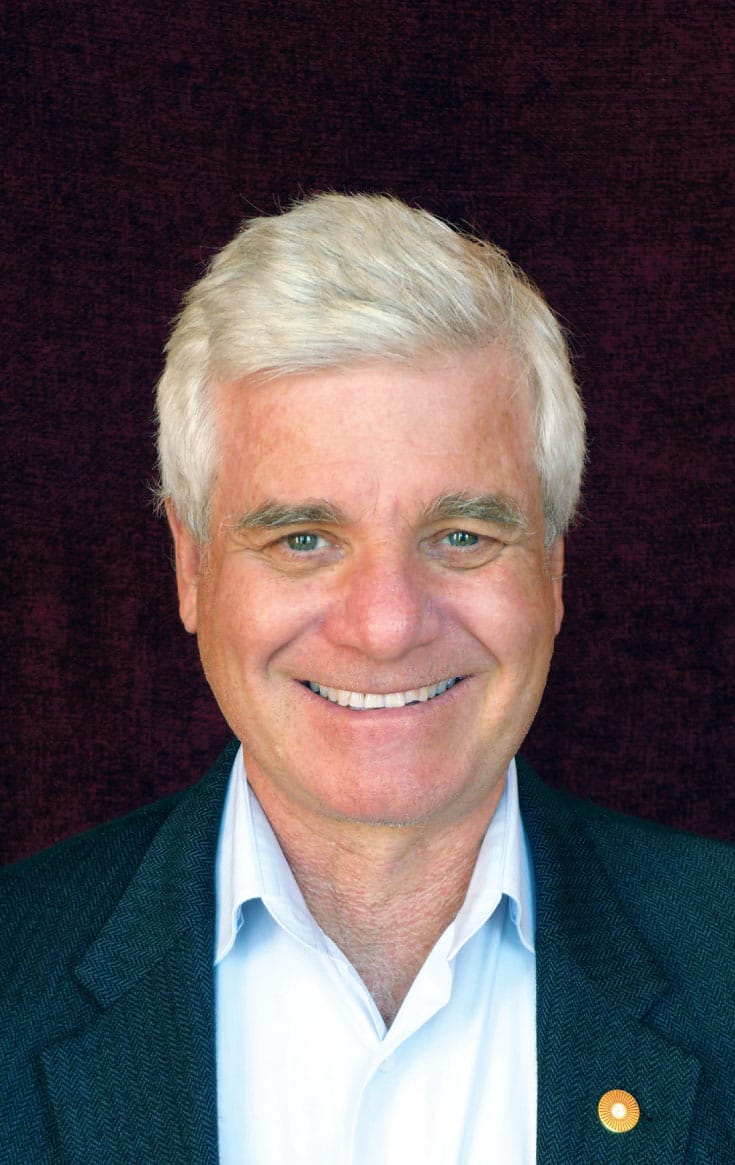
Melvin McLeod. Photo by Megumi Yoshida.
Our editor-in-chief discusses freeing yourself from difficult emotions and why simply enjoying your life is the best gift you can give.
The simplest spiritual instructions are often the most profound—and the most difficult to follow. Just sit. Be compassionate. Trust in your basic goodness. Love.
They’re so simple we don’t believe them. Surely, we protest, real spiritual truth must be complex, difficult, and far away. And so we miss (or more likely avoid) what is right in front of us, the “Buddha in the palm of our hand.”
I’m struck by two ordinary truths in this issue that are profoundly transformative, far-reaching, and beneficial to ourselves and others. Surely these are the criteria for great spiritual teachings, no matter how simple they sound.
Buddhists talk a lot about working with our thoughts, but as Chögyam Trungpa Rinpoche said, that’s just the first incision of the major surgery we need. The real work starts when we get to our emotions. They put the muscle into our suffering.
In Buddhism, suffering is called one of the three marks of existence, and Dzongsar Khyentse Rinpoche defines it this way: “Emotions are painful.” Since suffering is also the Buddha’s first noble truth, that places painful emotions at the heart of the Buddhist path.
Grief, fear, anger, and the rest hurt in our mind, heart, and body. Emotional pain causes us to hurt others and others to hurt us. Emotions like anger and greed drive wars and social ills. In fact, they drive samsara altogether, since two of the three poisons at the center of cyclical existence—passion, aggression, and ignorance—we identify as emotions.
Emotion is ego’s best ally. As Trungpa Rinpoche pointed out, thoughts are too insubstantial to really confirm our existence. Our emotions, so strong and seemingly solid, prove our existence and the existence of the world that provokes them. From ego’s point of view, “I feel, therefore I am,” is much more convincing than “I think, therefore I am.”
All this—from our own pain and our relationship issues to global problems and enlightenment itself—is addressed when we ask ourselves the apparently simple question: How do I find freedom from difficult emotions?
Here’s another all-too-simple instruction in this issue: Enjoy your life. So much changes when you enjoy life, day by day, in simple, wholesome ways. You are happy to be on this earth. You cheer others up and show them they can enjoy life, too. You are not driven to hurt people by your own unhappiness. Far from being selfish, enjoying your life is the best gift you can give.
In the end, how well you work with your difficult emotions, and whether or not you enjoy life, come down to one thing: how you feel about yourself, how—or even if—you experience your basic being.
How can you weather strong emotions if you feel inadequate, incomplete, and guilty inside? How can you be happy if you feel you don’t deserve happiness? How can you trust the goodness of the world if you don’t trust your own? How can you enjoy life if you don’t enjoy being you?
On their website, our friends at the Greater Good Science Center in Berkeley offer ways to help you notice the good you do every day. That’s a useful first step on the path to experiencing your true nature, your buddhanature, which is complete and good.
How do you be who you really are? How do you become who you are already? Here’s another simple instruction: Stop. Do nothing. Don’t even “meditate.” Just do nothing, and samsara will stop turning and you will be who you really are.
Buddhism is the Seinfeld of religions: it’s about nothing. And that nothing is everything.
